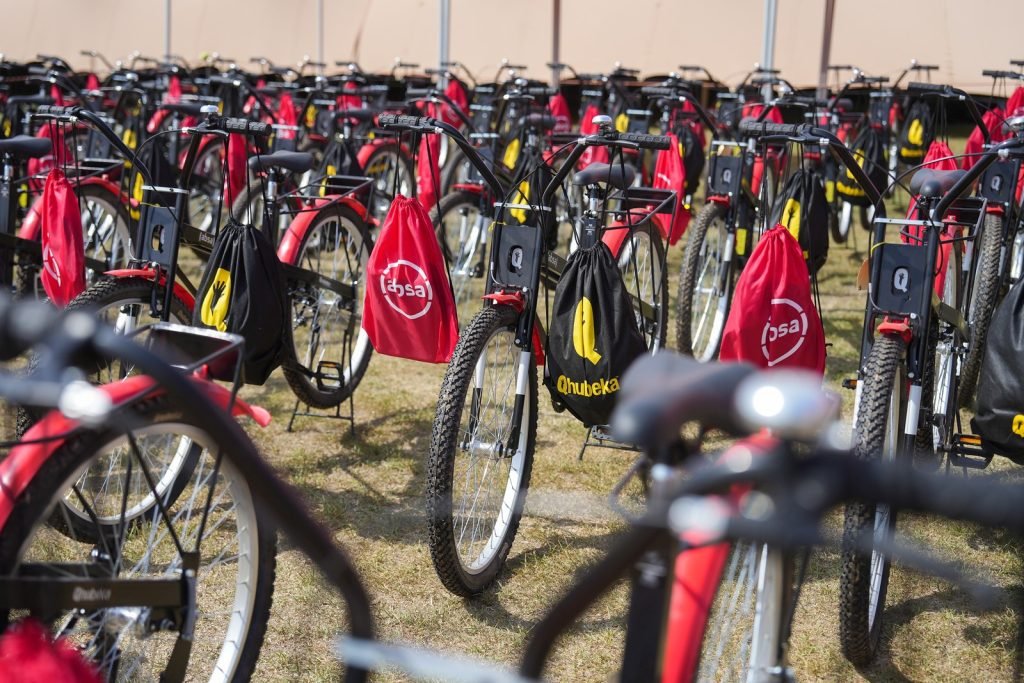By Tim Cohen
I cannot tell you how many times I have read these words, “South Africa’s unemployment rate, the highest in the world …” blah, blah blah. It’s worrying, irritating, demeaning, and I’m willing to bet, totally wrong. Of course, that doesn’t mean SA does not have an unemployment problem, but it’s so different from the one generally described, it honestly offends me.
www.sagoodnews.co.za adds: The same can be said about inequality and poverty. The claim “SA the most unequal society in the world as measured by the GINI co-efficient” as well as “55% of South Africans live in poverty”, is, as Tim says,‘totally wrong’ but that for another day!
You have to start off with three things in mind, I think. The first is this: how the history of SA’s employment and unemployment have unfolded. Second, the incentives of the people who form part of the official surveys on the subject, and third, the incentive systems operating for the people who cite SA unemployment levels.
Let’s start with the data itself, as presented.
This is a little dated – it comes from an article penned for the HSRC in 2022 called, The State of Employment and Unemployment in South Africa, by one of SA most engaged and informed economists, Miriam Altman. As everybody who follows this data knows, SA has two measures: a strict definition, which, as is normal in international practice, excludes people who have given up looking for work. And we also have a broad definition that tries to take into account the general working-age population. Both of these measures are parlous and both have been increasing.
Altman says the build-up of unemployment in South Africa over the past decades can most accurately be attributed to the demise of jobs in traditional resource based industries in agriculture and mining without a concomitant employment take-up in more advanced industrial sectors, as would be expected in a process of structural change and development. The other important factors are “weak human and physical capital formation”, which goes back to the apartheid minerals economy.
The nature of employment has also been changing rapidly because the proportion of formal-sector workers to informal-sector workers has been declining dramatically. Between 1994 and 2001, it fell from 69% to 49%. “At the same time, those underemployed rose from 14 to 21 per cent, and unemployed from 17 to 30 per cent,” she writes.
This is all interesting and significant in its own way, but there is a contrasting offered by GG Alcock, who is well known as a champion of the “ikasi” economy, and who has written books on his adventures in small business entrepreneurism. He goes nuts when he reads about the notional unemployment levels in SA, and says the “unemployment stats are rubbish” because they measure something he calls “payslip employment”.
In his book Born White Zulu Bred, he estimates that “real unemployment”, which means a lack of any form of income (excluding social, old age or unemployment grants), sits at around 12%. To get to this number you have to look further than SA’s official statistics and into the results of SA’s corporate sector for one. One example he cites is Transaction Capital’s CEO David Hurwitz, who pointed out that even though technical unemployment is at historically high levels, one-third of customers making monthly repayments on their debt via TCRS were not formally employed, ‘reflecting some resilience in South Africa’s informal sector’.
To take another example, Capitec CEO Gerrie Fourie was reflecting on the bank’s stellar performance and made the point that after walking around some of SA’s townships and seeing the vibrancy of the businesses, he asked his staff to calculate how many Capitec customers were making deposits of more than R3 000 five-times each month. The number had increased from about 200 000 in 2018 to more than a million in 2022. And these are deposits into personal accounts, not business accounts.
In some ways, Capitec’s extraordinary advance is itself an example of this trend. The bank now has an active client base as large as the SA clients of Standard Bank, Absa, and Discovery Bank combined. How did the pillars of SA’s banking industry miss this trend?
One possibility is because they were relying on the official numbers about SA’s unemployment rate and betting, as conservative bankers must, that the economy was under pressure, so the banks’ lending policies should be constricted till the economy turns around.
Alcock’s numbers are routinely questioned by formal economists who claim they are too anecdotal and based on questionable statistical methods. Fine, but here is the thing: SA’s unemployment stats claim the absolute number of people in SA’s ‘informal sector’ as it’s called – trust me it’s not informal to the people living in it – have consistently been a little over six million people since 1994, compared to just under 11 million people in the formal sector.
That is just horse manure for two reasons: it’s too small and it cannot have been that consistent over 30 years. Some of what Alcock discovered by actually talking to people in SA’s informal sector is just how much some street sellers take home.
A recent survey by a group called African Response found that among young people who classified themselves as unemployed and looking for work, 41% are earning up to R15 000 a month through income-generating activities such as baking, building and hairdressing – the ‘side hustle’. They say, ”What this shows is that many of our young people are resilient and inventive about making ends meet. We need to reinforce that and build their confidence so that that attitude catches on”.
So back to the incentives of the different players here. I don’t know how much this all plays into these issues, but just think about it for a moment.
‘Progressive’ economists and politicians have a huge incentive to highball these numbers to justify extra fiscal distribution.
Opposition politicians have an incentive to highball these numbers because they can rub the government’s nose in this ‘failure’.
Ordinary people who answer surveys about employment have a big incentive to not alert the taxman to their business successes.
And the big problem that underlies it all is that economic change happens fast, but government statistics move slowly. They need to catch up.
Good investing,
Tim Cohen
The post Are we ready for a big debate about SA’s unemployment rate? appeared first on The Home Of Great South African News.
I cannot tell you how many times I have read these words, “South Africa’s unemployment rate, the highest in the world …” blah, blah blah. It’s worrying, irritating, demeaning, and I’m willing to bet, totally wrong.
The post Are we ready for a big debate about SA’s unemployment rate? appeared first on The Home Of Great South African News. Read More


